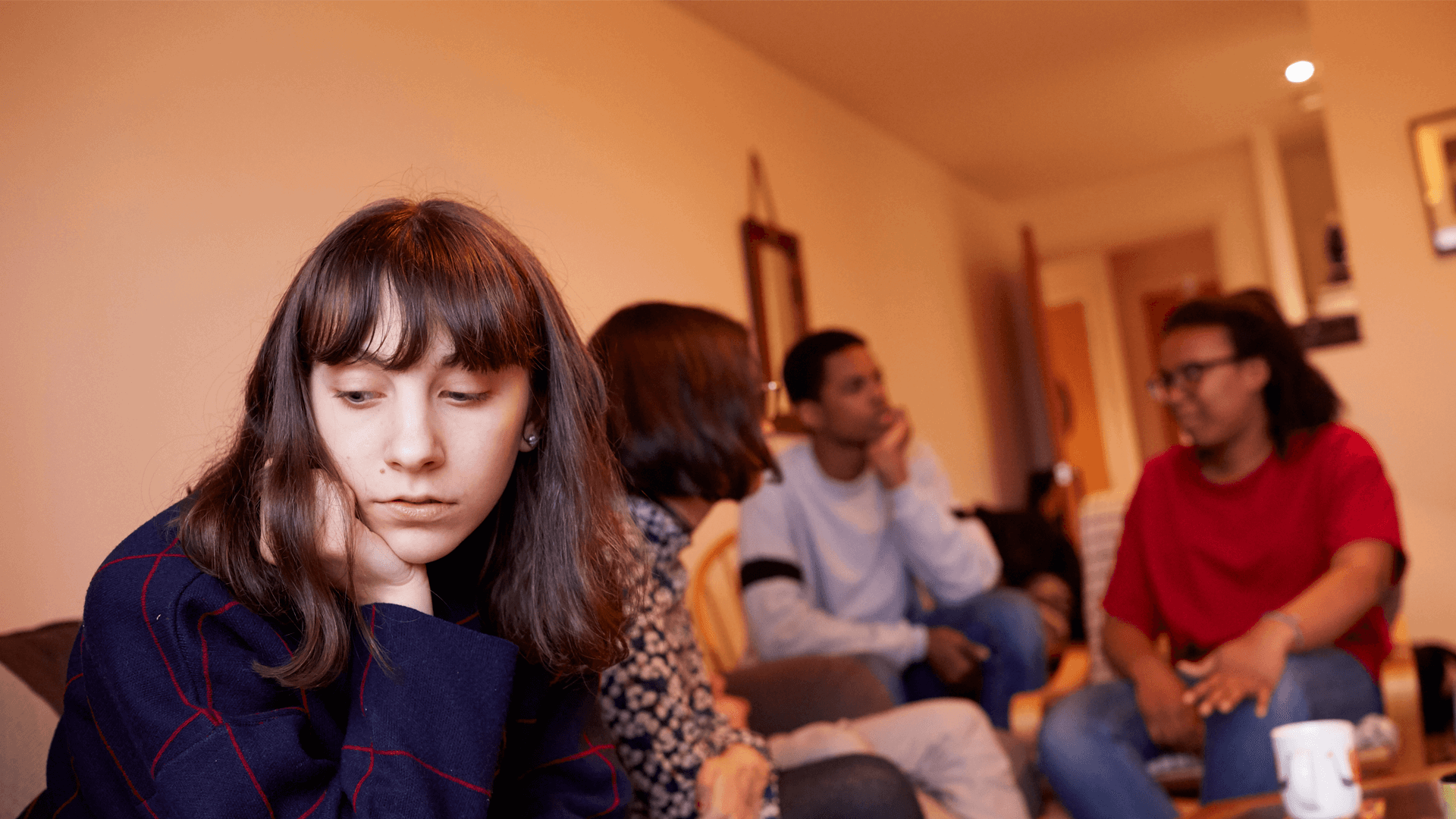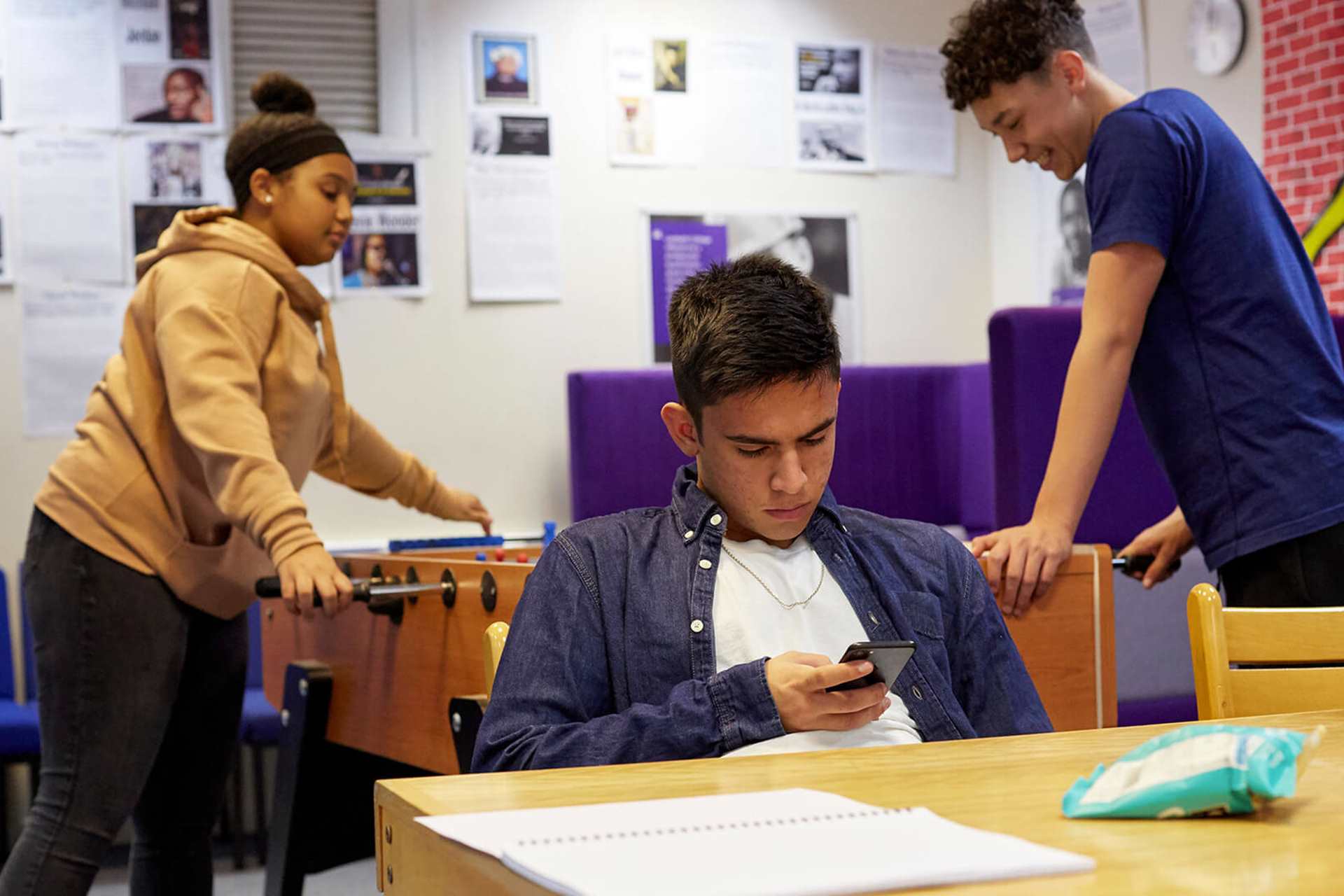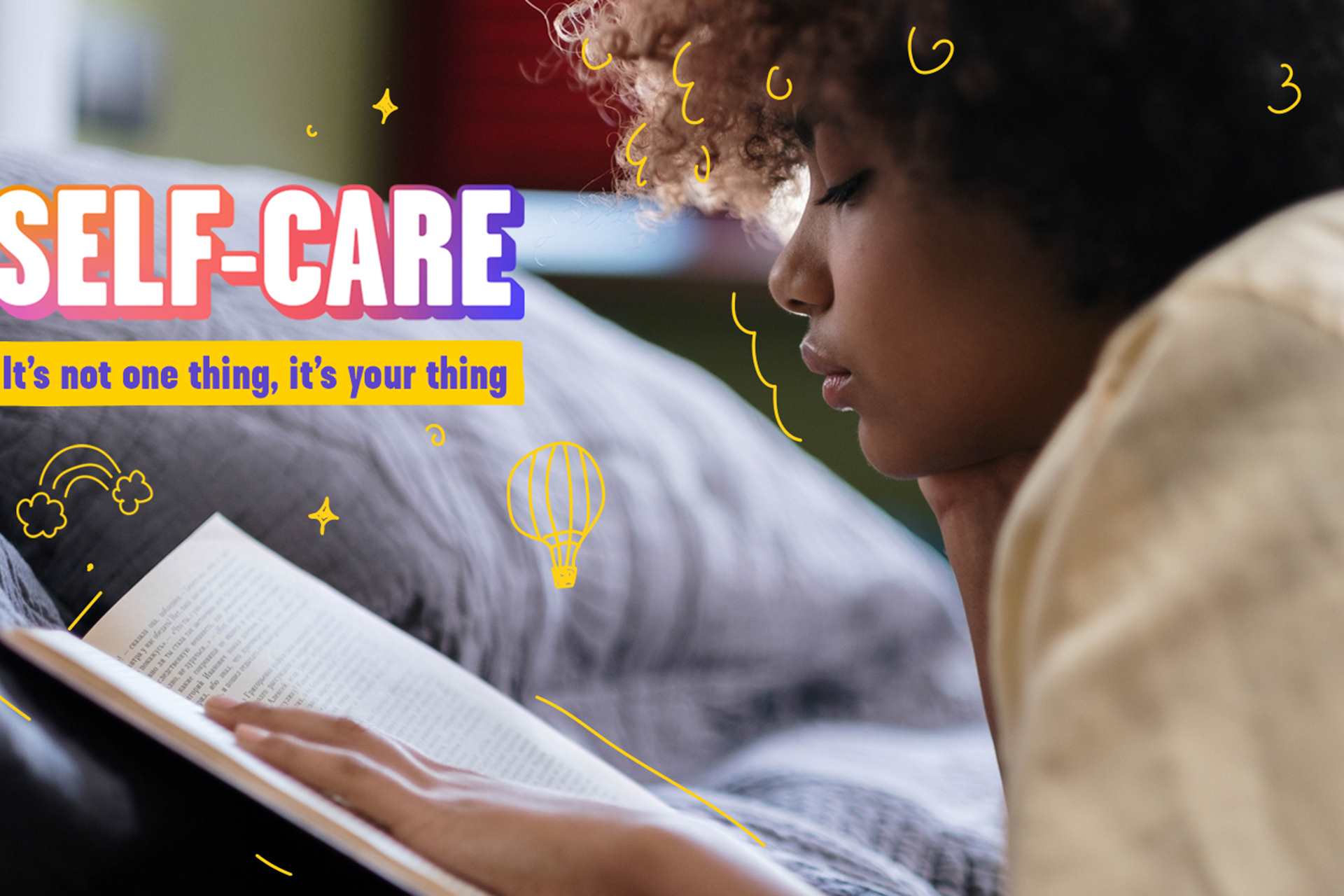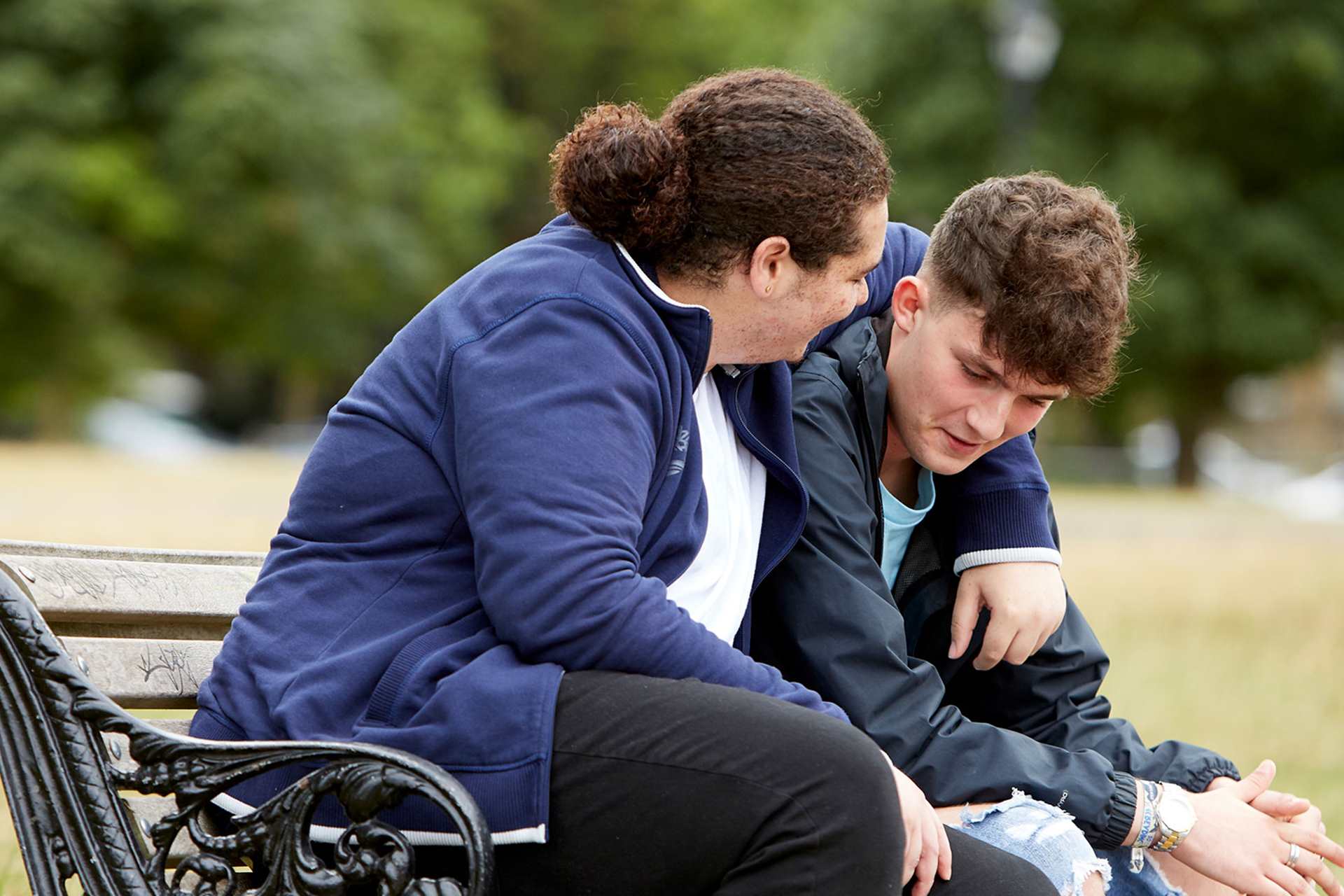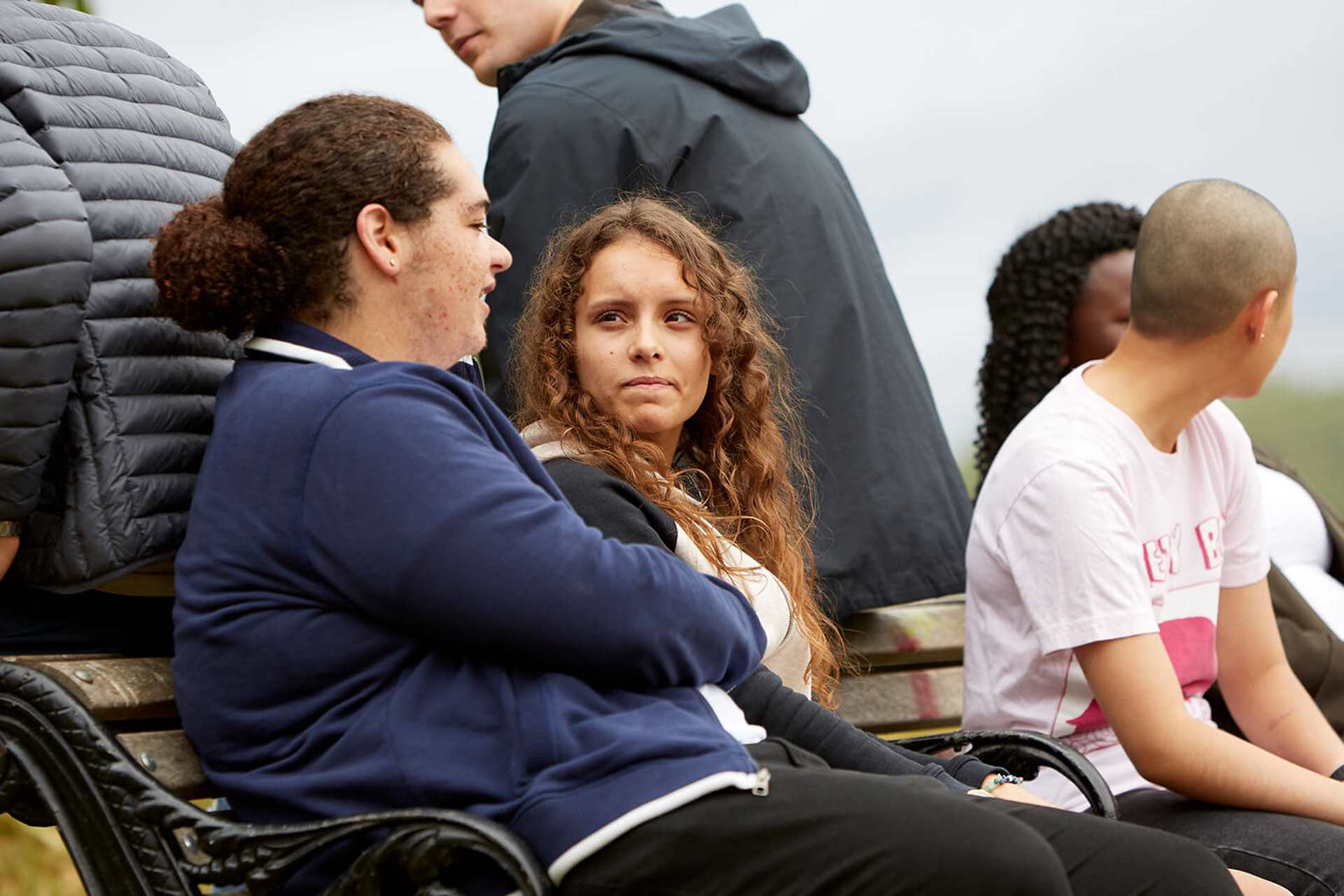Topics mentioned: exam stress, anxiety, self-care
About: Results day can be really scary. Irum shares the lessons she's learnt since GCSE results day and explains why there's no need to be worried.
When I started my A-Levels I became so unwell that after just two weeks it was decided I should take some time out of education.
Results day is one of the most dreaded days of the year for many students. Like I did, you might be having recurring nightmares about it, you might feel dizzy from all the ‘what ifs’ going around and around in your mind, you might feel like your heart is beating so hard it might actually break your ribcage and jump out of your chest (Note: it won’t).
It can be terrifying. But honestly, it does not need to be. You might have lots of negative thoughts like this, but what if we questioned how true they really are?
My story
To give you some background, I have struggled with various mental health conditions since the age of 12. I am now 18. I got decent GCSE results, but it was very challenging. When I started my A-Levels I became so unwell that after just two weeks it was decided I should take some time out of education, so I deferred the year. I was admitted to hospital for six months.
The next September, I started a BTEC course instead, hoping that the different structure might suit my needs better. I was intending to do the whole two years in order to go to university, but I ended up missing two big chunks of the year, (once in hospital again, and once when I was too unwell to go into college).
Thankfully I scraped through the first year with lots of help and adjustments from my college, but going into the second year is not recommended for my health. Now I am working, and I'm unsure if I will return to formal education. I want to share with you some of the key lessons I have learnt since GCSE results day.
There are so many alternatives to the traditional route (GCSEs - A-Levels - university) that many young people are not made aware of.
Lesson 1: You cannot predict what will happen
No matter how well you think you know the mark schemes, you cannot predict what you are going to get. From what I’ve seen, most people actually get better results than they thought they would when they walked out of the exam hall. So if you’ve made some predictions, try not to get too emotionally wound up over them, as they are essentially completely made up by you.
Lesson 2: Research alternative routes
Research! There are so many alternatives to the traditional route (GCSEs - A-Levels - university) that many young people are not made aware of - BTECs, NVQs, Access to Higher Education Diplomas, short courses, apprenticeships, traineeships, the Open University, foundation degrees, finding a university place through clearing, even more that I don’t yet know of - and choosing them does NOT make you inferior or less intelligent or less ambitious than people who go down the traditional route.
It is important that both schools and parents understand and encourage this. For a handful of careers, yes, taking an alternative/uncommon route may mean it takes you a bit longer or it is a bit harder to achieve your final goal, but there will also be advantages. You’ll probably have a more interesting and varied experience, learn more, and keep yourself in better health, both mentally and physically.
There are so many alternatives to the traditional route (GCSEs - A-Levels - university) that many young people are not made aware of.
Lesson 3: Your health comes first
Nothing is worth your health. Life can often feel like a race 24/7, but it doesn’t need to be that way. You have all the time in the world left to achieve your goals, and if you are determined, you will get there. But take care of yourself whilst you’re at it.
Lesson 4: Life is unpredictable
Life never goes as planned - it is unpredictable. Even people who follow that traditional route don’t stay on a straightforward path forever. Many come out of university not knowing what they want to do, experimenting in different jobs until they find one they like.
Some work for a few years in the job they are qualified in and then find they hate it, go back into education (because remember, there is no age limit in education), qualify in something else, and start working in that field instead. Others work in jobs that are completely unrelated to their educational qualifications – they may not have even needed all their qualifications.
The message here is that it’s okay if you look like the odd one out when you make a different choice to your friends aged 18 – you’ll all be odd ones out when you’re 40.
Life can often feel like a race 24/7, but it doesn’t need to be that way. You have all the time in the world left to achieve your goals.
Stay calm and remember, you are good enough
So if your results are not what you hoped for, stay calm, research your options, and don’t beat yourself up. Try to comfort yourself in the same way you would comfort your best friend. Be kind to yourself. Give yourself a break. You are good enough.
Those letters/numbers are not the most important thing in the world. If it’s not far too cheesy and cliché, remind yourself that everything happens for a reason, and that everything will turn out okay. Don’t give up on your dreams or yourself.
I like this quote by author Napolean Hill:
Most great people have attained their greatest success just one step beyond their greatest failure.
More information and advice
We have tips and advice to help you find the support you need. Take a look at our guides.
Where to get help
However you're feeling, there are people who can help you if you are struggling. Here are some services that can support you.
-
Exam Results Helpline
Provides careers advice to help young people and their families decide on options following GCSE, A Level and Nationals results days.
Usually available through August. Opening days and hours may vary each year - check website for details.
If you live in Scotland, call 0808 100 8000.
-
Childline
If you’re under 19 you can confidentially call, chat online or email about any problem big or small.
Sign up for a free Childline locker (real name or email address not needed) to use their free 1-2-1 counsellor chat and email support service.
Can provide a BSL interpreter if you are deaf or hearing-impaired.
Hosts online message boards where you can share your experiences, have fun and get support from other young people in similar situations.
- Opening times:
- 24/7
